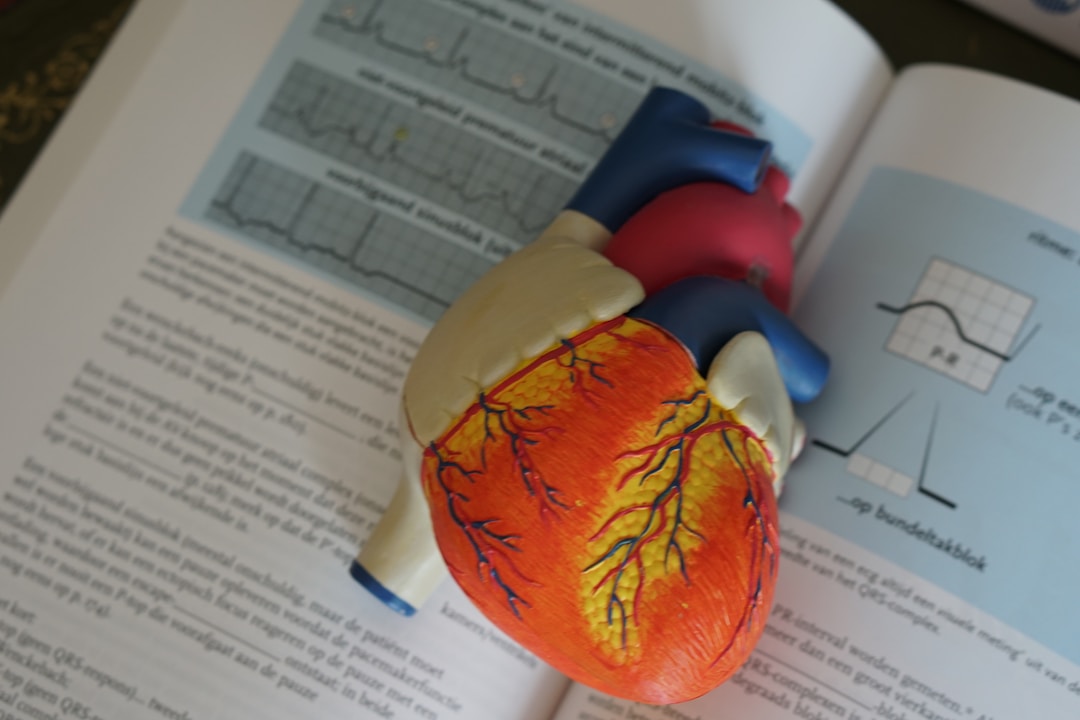Heart disease remains a leading cause of mortality worldwide, but it’s largely preventable through lifestyle adjustments and appropriate medical treatment when necessary. The field of cardiology has made meaningful strides in understanding heart diseases and providing advanced treatment methods to control them. Below, we review key tips and recommendations for promoting heart health and preventing heart disease, combining insights from modern science, practical advice, and invaluable wisdom.
Understanding the Risk Factors

Comprehending the risk factors associated with heart disease is paramount in prevention. Several risk factors, some modifiable and others not, contribute to the development of heart diseases. Nonmodifiable risk factors include age, sex, and family history, among others. As we age, the risk of heart disease increases. Men are generally at a higher risk than women, and an individual with a familial background of heart disease is more likely to suffer from the condition.
No matter what your risk factors are, you should make time to see a cardiologist, like this top cardiologist in Los Angeles. Regular check-ups and screenings can help detect these health issues early, allowing timely intervention and prevention of heart disease. Prescribed medication should be taken as directed by healthcare professionals to manage their condition. They can make you aware of any heart conditions or concerns that you need to know about and come up with a treatment plan that will protect your heart health.
Despite having several uncontrollable factors, numerous modifiable factors directly impact heart health. These include smoking, unhealthy diet, lack of physical exercise, excessive alcohol consumption, and obesity. By adjusting these lifestyle habits, one reduces the risk of heart disease. You also have to regularly monitor and control other medical conditions that might escalate the risk of heart disease, such as diabetes, high blood pressure, and high cholesterol levels.
Heart-Healthy Diet: Food for the Heart
Diet greatly affects heart health. A heart-healthy diet mainly consists of fruits, vegetables, lean proteins, and whole grains. These foods are rich in nutrients and low in unhealthy fats. They promote healthier blood pressure levels, lower cholesterol, and manage body weight, thereby reducing heart disease risk. Minimizing the intake of sodium, trans fats, saturated fats, and cholesterol is also required in a heart-healthy diet.
It’s vital to remember that moderation is the key when it comes to intake. Consuming too much of a certain food type, however healthy, can still lead to problems, such as weight gain and deficiency in other necessary nutrients. A balanced diet emphasizes variety and portion control, ensuring you receive a spectrum of nutrients without overeating. It’s also recommended to replace processed foods with whole foods as much as possible.
People often wonder whether they need to eliminate certain food categories, like fats, from their diet. You need to understand that not all fats are equal. Unhealthy fats like trans fats and saturated fats should be avoided as much as possible. On the other hand, healthy fats, like those found in olive oil and avocados, can be beneficial for heart health when used in moderation.
Importance of Regular Physical Activity

Maintaining active physical habits is essential for a healthy heart. Regular physical activity strengthens the heart, improves blood flow, ups the good cholesterol while lowering the bad, and aids in maintaining body weight. Resistance and aerobic exercises are especially beneficial. The former includes activities like weight lifting that improve muscle strength and endurance while the latter, like jogging, swimming, and cycling, enhances cardiovascular health. Even everyday activities such as gardening and walking can keep your heart active and healthy.
Physical activities also provide mental health benefits. Regular exercises help reduce stress levels and combat conditions like depression and anxiety, which can indirectly affect heart health. You do not need to engage in vigorous workouts to reap these benefits. Consistency is more important. As such, finding physical activities that are enjoyable guarantees that you’ll stick to them in the long run.
Before starting any exercise program, it’s crucial to consult a healthcare professional, particularly for individuals with pre-existing health conditions. They can guide you on safe workouts that consider your health status and fitness level.
Regular Health Screenings
Regular health screenings play a significant role in the prevention of heart disease. These screenings help detect potential health issues before they become problematic. Some of the key screenings for heart health include blood pressure checks, cholesterol levels, and diabetes screening. You can do this by seeing a reputable, trusted cardiologist in your area.
Blood pressure is one of the primary heart disease risk factors. Regular screening can help identify if you have hypertension (high blood pressure), which, if untreated, can cause heart disease. Similarly, high cholesterol levels can lead to the build-up of plaques in your arteries (atherosclerosis), escalating the risk of heart disease. Regular cholesterol checks can help detect high levels early and prompt intervention.
Effective Stress Management

While a certain amount of stress is common in everyday life, chronic, uncontrolled stress can have a negative effect on heart health. Extended stress can lead to unhealthy coping mechanisms such as smoking, alcohol consumption, overeating, or lack of physical activity. These behaviors, in turn, increase heart disease risk. Stress can also directly contribute to heart problems like high blood pressure and irregular heart rhythms.
Furthermore, it can have an indirect impact on heart health, for example, by promoting inflammation in the body, negatively affecting the heart. Using stress management techniques can enhance heart health. Several stress management techniques have proven effective including physical activity, meditation, deep breathing exercises, and yoga. Additionally, gleaning social support from friends and family members, seeking professional help when needed, and ensuring adequate sleep are all vital components of a robust stress management strategy.
Healthy Weight Maintenance
Maintaining a healthy weight is critical for heart health. Being overweight can lead to various health issues including high blood pressure, high cholesterol, and diabetes, which exponentially increase heart disease risk. A measurement called Body Mass Index (BMI) is often used to gauge whether a person’s weight is in a healthy range. Still, note that weight loss should be considered only when it’s beneficial for one’s health and should be done safely.
Drastic weight loss techniques often lead to fast regain of weight and can also be harmful to health. Preferably, weight loss should be gradual and part of a comprehensive lifestyle modification program that includes a healthy diet and regular physical activity. It’s recommended to work with healthcare professionals like dietitians and exercise professionals for a personalized weight maintenance plan. This plan should consider your individual health status, preferences, and lifestyle to ensure it’s sustainable and effective.
Quit Smoking and Limit Alcohol

Smoking and excessive alcohol consumption are risk factors for heart disease. Chemicals in tobacco can damage your heart and blood vessels, leading to the narrowing of the arteries due to plaque build-up (atherosclerosis), which can ultimately lead to a heart attack. Even smoking occasionally can damage the heart and blood vessels, making it a substantial risk to heart health. On the other hand, while moderate alcohol consumption has been linked with some health benefits, overconsumption can lead to high blood pressure, heart failure, and an increased calorie intake leading to obesity.
Alcohol can also heighten the risk for diseases such as cancer, liver disease, and stroke. Hence, if you decide to drink alcohol, it should be done so responsibly and in moderation. In both cases, seeking professional assistance for smoking cessation and limiting alcohol consumption can be beneficial. A range of tools and resources are available, including medications, behavioral treatments, and support groups, that can improve your chances of success.
As this article clearly demonstrates, heart disease prevention relies on proactive steps towards a healthier lifestyle and patterns that sustain heart-healthy behaviors. Regular check-ups also ensure early detection and treatment of conditions that may boost heart disease risk. Overall, heart disease prevention is a lifelong commitment deserving of constant attention and dedication. Follow the advice in this article and make your heart health a priority today.





